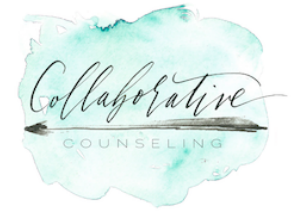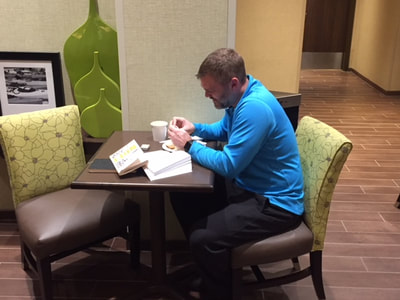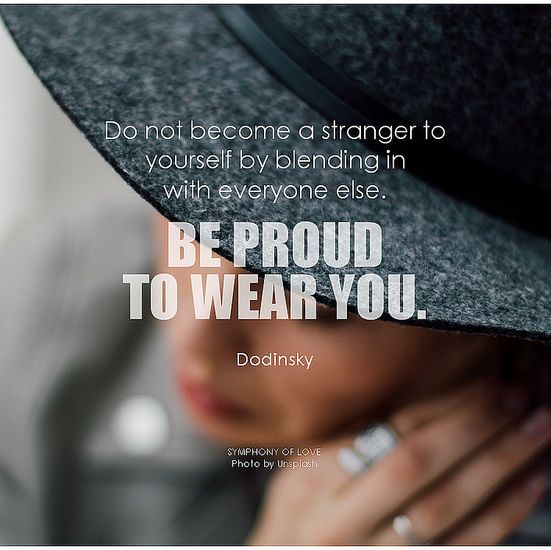|
UPDATED 03-20-2020
Collaborative Counseling Group continues to closely monitor the COVID-19 coronavirus situation as it develops. In order to limit the risk of personal exposure to the coronavirus, we will be moving to a teleconferencing, video-conferencing schedule effective Monday, March 23, 2020. Through our confidential online, HIPPA-compliant counseling portal Simple Practice, we have the unique ability to continue to serve our clients through one-on-one care and support within the convenience and safety of your own home. We understand in these challenging circumstances that maintaining your counseling appointments may not be the highest priority and we completely understand that you and your family’s health and safety are of highest concern. We are also aware that most families facing social isolation for an extended amount of time are experiencing new dynamics within the their home and relationships that warrant regular counseling sessions and we are available to help. If you are an existing client with an open appointment and would like to do a telephone or video-conferencing session, please e-mail Buffy: [email protected]. After receiving your request, a link to the Tele-Health Video Conference will be sent out with instructions. If you are a new client and would like to schedule your first in-take appointment through telephone or video-conferencing, please contact Buffy: [email protected] or 980-250-2438. Thank you for your cooperation during this time. -Collaborative Counseling Group
0 Comments
This past weekend Collaborative Counseling, a leading Fort Mill counseling group, launched their first ever men’s event called Exhale. 8 men joined Charles Wimmer on a 27 hour retreat focused on slowing down, reconnecting with God and kicking off a 7 week study on Growing in Character. The weekend started off with a short shuttle ride up to Boone, NC provided by our partners over at Yellow Bike Tours. This was a great time to decompress, for guys to meet each other and learn more about the next 27 hours. After checking into our hotel, the group grabbed a big dinner at the Peddler Steakhouse. Awesome food and great conversation were had by all. After quick shuttle back to the hotel for the official kickoff of the weekend, each man was challenged on why character is important, why it must be maintained and how you must be disciplined over time to develop godly character in your life with Jesus help. It was also a time for each individual to take stock of their own life and allow time to pause from all the busyness and focus on core values. The group was challenged to wake up early for breakfast and get some quiet time with the Lord for reflection. After a delicious continental breakfast the group was fueled up and ready for the big day ahead on the mountain: An 8 mile hike on the world famous Grandfather Mountain Profile Trail. Despite chilly temperatures and some muddy trails, the group made their way up over rocks and crags and even some ice to conquer the summit. Along the way they were given different things to think about and stories were shared about why character is essential to the Christian life. Ascending down the mountain to warmer temperatures, the group jumped in the van and shuttled back to Charlotte. It’s always amazing to see how much was accomplished in 27 hours with a group of willing men. The next 7 weeks should be an exciting time of growth, mentoring and self reflection in the context of a strong community of men. Want to learn more about this type of experience for your small group? Are you a man looking for community and fellowship with other men who are serious about growing in their faith? Contact Charles Wimmer at Collaborative Counseling Group based in Fort, Mill SC for more information. TestimonialAs a busy middle aged father, I don't get many breaks to be able to focus on my internal character. Exhale provided me an incredible group opportunity to slow down and refocus on what matters most. The guys were great and I know its something I need to make a priority in my life. Highly recommend Exhale. Pictures from the Exhale Men's Weekend on Grandfather Mountain Post-Traumatic-Stress-Disorder or PTSD is a recognized term but often misunderstood. As a therapist who specializes in treating trauma, I teasingly tell my clients, “I can smell it walk in the door!”. Although, PTSD symptoms, typically are thought to be related to the military in war zones, symptoms can also be present in disasters, abuse, violence, and terrorism right here in the United States. The National Center for PTSD reports that, “6 of every 10 men (or 60%) and 5 of every 10 women (or 50%) experience at least one trauma in their lives. Women are more likely to experience sexual assault and child sexual abuse. Men are more likely to experience accidents, physical assault, combat, disaster, or to witness death or injury.”www.ptsd.va.gov Diagnosing trauma begins with the clinician looking for signs of the client re-experiencing the trauma: do they tend to avoid particular places or people? Are they easily aroused or are there any negative changes in beliefs and feelings? Dr. Bessel Van Der Kolk M.D. (www.besselvanderkolk.net) has worked with children and adults who have experienced trauma for over four decades. His research has discovered that trauma can have a distinct impact on individuals at different stages of development. This relatively new discovery has now broadened the scope of trauma and who is affected. Dr Peter Levine, a psychiatrist who has worked in the field of stress and trauma for over forty years writes in his best seller, Waking The Tiger, that many incidents can cause traumatic reactions later in life making them not feel safe. Some of these include: birth trauma, loss of a parent or close family relative, illness, high fevers, physical injuries, severe abandonment, certain medical and dental procedures, and prolonged immobilization are just a few. There are several treatments recommend to help relieve the effects of trauma: EMDR, bio-feedback, therapeutic yoga, prolonged exposure therapy, Cognitive Processing Therapy (CPT) and medication. As an EMDR (Eye Movement Desensitization Reprocessing) trained therapist, I have personally worked with many clients who receive relief from intrusive thoughts, nightmares, emotional distress, as well as difficulty concentrating and sleeping. I treat those with small “t” traumas as well as big “T” traumas. Sessions typically require a thorough history, teaching ‘safe place’ and working through the 8 phases of the therapy. Please call today for your initial appointment to find out if EMDR could help you. 980-250-2438 or email [email protected] I look forward working along with you as you seek a healthy 2018! So often, people engage in practices to enhance or improve their happiness or their health, but do it for the wrong reasons. Someone may visit the gym three times a week, not because they really care for themselves, but because inside their mind, they hate their body and want it to look different so that they can love it (or someone else can). These motivations are not entirely wrong, exercising and eating healthy is wonderful, but if done out of a hate for oneself, the results will rarely give way to a deep, lasting happiness. Because the happiness is contingent on how their body looks. When self-talk says “Ugh gross, you’re so fat - work it off, pump it, jog, jog, jog.” then when the weight comes off the self-criticism will find something else to pick on you about or you’ll hate yourself still if you can’t keep the weight off.
The key is acceptance. When we can acknowledge our humanness, accept who we are, just as we are and then choose health and wellness because we care about ourselves so much, that is self-compassion. What drives you to eat healthy or exercise? Is it because you love yourself or you hate yourself? Is it to try and impress someone else or attain their approval of you? These motives will not sustain. The truth about being human is that we will all try and fail many times in life. We will mess up, make mistakes and let others down. That’s being human. What’s important is to own and accept these failures omitting shame, make amends or apologizes if needed, and then show kindness to ourselves, knowing we are human and that being perfect is not attainable for anyone. Perfection drives most people to self-hate and hold unattainable standards for themselves. Self-compassion, allows oneself to accept themselves (failures and all), choose to believe they are doing the best they can and then move forward in self-love towards attainable goals and standards. If you’re new to the concept of self-compassion, here’s a brief overview to get you started. Self- compassion is essentially showing care and concern for yourself just as you would a dear friend. Unfortunately, most of us do not treat ourselves gently, or care for our innermost thoughts with compassion. For as much as we may be sacrificial, nurturing, caring individuals on the outside, many of us speak negatively to ourselves behind closed doors and in the closets of our minds. But how can we really show genuine love and compassion to others if we don’t even know how to show that same care to ourselves? The concept is simple in theory but like most skills, takes practice to master. Dr. Kristen Neff, author and professor of Communications and Self-compassion gives us a starting place for understanding what self-compassion is. “Self-compassion involves acting the same way towards yourself [as you would a dear friend] when you are having a difficult time, fail, or notice something you don’t like about yourself. Instead of just ignoring your pain with a “stiff upper lip” mentality, you stop to tell yourself “this is really difficult right now,” how can I comfort and care for myself in this moment? Instead of mercilessly judging and criticizing yourself for various inadequacies or shortcomings, self-compassion means you are kind and understanding when confronted with personal failings – after all, who ever said you were supposed to be perfect?” In her book ‘Self-Compassion’ and her 8-week program ‘Mindful Self-Compassion’, Dr. Neff encourages a change in mindset through exercises that promote self-care. On her website self-compassion.org there are 8 simple exercises you can practice at home. These exercises highlight the following: • How would you treat a friend? • Taking a Self-Compassion Break • Self-Compassion through writing • The criticizer, the criticized and the compassionate observer • Changing your critical self-talk • Identifying what you really want • Taking care of the care-giver It's February! Month two of a New Year, a new hope, a horizon full of endless possibilities, but you wake up in the morning, wipe the sleep from your eyes, glance back at yourself in the mirror and sigh. There it is, sitting on your shoulders: the pressure to make this year "The year". The year that you finally (fill in the blank) ____________ get sober, fall in love, lose weight, get out of debt, make partner, get that promotion, have a baby, get married, graduate, exercise more, travel, forgive someone. Sometimes the weight of that "this is the year when_____" is more crippling that it is encouraging. Perhaps it's just so overwhelming you're unsure where to begin.
"You must master a new way of thinking before you can master a new way to be." -Marianne Williamson A new way of thinking could sound like an impossible and complex feat, but it's actually quite simple. See this piece taken from "The Neuroscience of Changing Toxic Thinking Patterns" by Athena Staick, PhD. You need a way, a conscious way of observing your self and life, a conscious method of regularly imparting life-energizing thoughts into your mind as often as possible. Notably, your subconscious mind treats your thoughts and beliefs as tentative directives or commands. It relies on your thoughts to form your perceptions. Thoughts influence change because they shape how you relate (respond, react, etc.) to events and life in and around you. As perceptions, your thoughts are stop and go lights for the cells of your brain (and body) known as neurons. According to Dr. Staick, we need to work on both our conscious mind and our perceptions, or our subconscious mind in order to see notable change in our thinking. Let's say you have always perceived yourself as unlovable. Whether you have directly been told you are unlovable by someone, or people's actions (rejection, neglect, criticism, etc...) have been consistent enough throughout your life that you have developed a belief that you are unlovable. First off, you are absolutely lovable, just because you are you! The next good news is that YOU are able to change this toxic thought pattern! Take it one day at a time and even if you don't believe it at first, that's ok. But when you look in the mirror recite a mantra of self-love and self-acceptance. Say it everyday. Stick it on your mirror at home, in the kitchen, in your car, your office, in your wallet. Let this be the new neuron bridge that controls what thoughts are allowed to register in your brain. If you perceive and believe yourself to be worthy of love then rejection, neglect, criticism and the like won't make a bed in your brain. They will pass through, but not make a home, because the door to the home in your brain says "Worthy of Love". Use or modify the following to suit your needs: "I am lovable. I am accepted. I am worthy of love. I am beautiful. I am strong. I am smart and complete. No one can define my worth unless I allow them to, and I revoke giving permission to _____________(insert person's name who made you feel unlovable) to define my worth. I am worthy of love, just as I am." Once we can begin to master our thoughts, then we don't apply as much pressure on ourselves to accomplish ____________ (insert thing you think will make you more awesome) in order to feel lovable or whole or complete. Losing those extra pounds that bother you isn't what defines your lovability, but it could give you more self-confidence. Making partner doesn't make you worthy - you already know you're worthy, so making partner simply becomes a bonus. Even with addiction, getting sober isn't what will make one lovable. You're already lovable (believe it or not!). If getting sober is your goal, it absolutely could add so much more to your life, but it's terribly difficult to navigate sobriety when one feels unworthy. You're already worthy of love and belonging and accomplishing whatever goals you aspire towards just becomes another shiny star on your already sparkling crown, which has always sat atop your head. Go ahead....go look. That crown has always been there, because you have always been worthy of love. So first, may we learn to master a new way of thinking, believing that we are already enough, and worthy of love, so that we can master a new way of being.  My husband, Charles, and I just celebrated 40 years of marriage. We had no premarital counseling, no books recommended to read before marriage and none in the early years of our life together. After graduating from UNC- Chapel Hill, I drove my few belongings back home to Windermere, FL.,to then marry a wild and fun-loving man from West Virginia at a small yet beautiful wedding at Church of the Messiah in Winter Garden. We honeymooned on Sanibel Island and then borrowed a vehicle to make our way up to Roanoke, VA to begin our life together. Oh how I wish I knew then what I know now!! These 40 years have been challenging, yet exciting. Loads of laughs and buckets of tears. I've also had to take a hard look at my attitude and behavior towards my husband. God has taught me about forgiveness, grace, choosing my words with wisdom, and how to submit. Because I know firsthand just how difficult it can be for strong, stubborn women to actually live as the Bible teaches I will be blogging tips and recommended books the next few months. This blog begins with becoming a Wife of Wisdom I. A Wife of Wisdom trusts that God created marriage to be a blessing for her. How is that done? a. She must entrust herself and her situation to God. 1Peter 3:5 basically calls women to refocus and pray and hope in and to God. Hebrews 12:2 calls us to “fix our eyes on Jesus, the author and perfecter of our faith” b. We may have to momentarily give up our rights. Read Philippians 2:5-7 c. We discern before we speak. Pause is what I often teach. James 3:6 Sometimes, the only weapon we have is our tongue. Yet, once words are spoken you cannot retrieve them. For every negative comment it takes 10 positive words to counter-balance it. Both husbands and wives need to be better listeners. Try to hear what’s not being said. Watch for non-verbal’s. d. Believe in the value God places on her as a wife and mother. We are uniquely created. Typically we live longer than our husbands (fact sheet) we are the care givers of the family, the nurturers. There is (most of the time) a natural and automatic pursuit of us by our husbands and children. II. A Wife of Wisdom keeps her priorities in order. a. First priority: the Lord God (Deut. 6:5) Where is your spiritual eyes—on Christ or on people? Christ has to be our only hope for life and in marriage. Read I Peter 1:3 b. Second priority: your husband and yourself (Eph 5:21-24,33) Order is God then husband (not children) Don’t forget to care for yourself. Physically, spiritually and emotionally. There will be season’s that this is more difficult than others. c. Third priority: rearing children (2Timothy 1:5) d. Fourth priority: home (Proverbs 31;20, 27a) e. Fifth priority; work, ministry, and other activities III. A Wife of Wisdom supports her husband a. She helps by avoiding comparison b. She helps by showing compassion. IV. A Wife of Wisdom knows her husband’s needs. a. He has a need to trust. b. He has vocational needs c. He has spiritual needs d. He has sexual needs e. He has a need for time alone f. He has relational needs g. He has intellectual needs h. He has authoritative needs * Remember this is a marathon not a sprint. Give yourself plenty of time and God lots of room to move. Remember He is fighting FOR your marriage more than if the two of you are fighting against each other! Note* I can say I love my husband more today than the day I married him. The journey is worth it friends. Peace. Buffy  By Jessie Wimmer When we're sick we take medicine or vitamins, maybe rest in bed more, drink a lot of water, and give ourselves permission to "get well". Physical sickness often demands that our bodies slow down, get cozy and eat some warm chicken noodle soup. If our body is sick enough we literally do not have a choice. What about our emotional health though? Most people can function on an almost normal level even when they are struggling emotionally. We wear masks or pose to cover our emotional wounds and carry-on at work and with others even when just below the surface we are trying to hush the anxiety, or fear, or trauma that keeps trying to resurface. A lot of people develop coping skills to maintain a functional life even though they are struggling emotionally. For most, our emotional struggles aren't as pressing or nagging as a cold or the flu - which would put us in bed or send us to the doctor immediately. Yet, those mental wrestling matches are just as important, if not even more so to our well-being and overall health. Obviously, they are easier to ignore than the flu and we can numb them, or silence them, or busy them to death, but the truth is - those feelings are still there and need attention, just like a sore throat or fever. To stay well physically, most people have an exercise regimen, eat well, do their best to get 8+ hours of sleep a night, and have a balanced ebb and flow of work, family, friends and leisure. But what do we actively do to stay emotionally healthy? I know for myself, attending to my mental health wasn't something I ever learned in school, and yet it is just as important to our wholeness and our physical health. Our emotional, or mental health actually effects our physical health. Ever heard of a stress ulcer? No matter who you are or what your life map has looked like thus far, we as human beings are all in need of an examination of our mental health. Just like a car has flashing lights that come up on the dash warning the driver that the oil needs to be changed, or the engine needs to be checked or the antifreeze is low - we get these same flashing lights from our own bodies all the time; they're called FEELINGS. But most of us ignore these flashing lights on the dash of our soul and just keep pumping the gas for miles and miles without ever attending to what's happening under the hood. It's kind of a dumb questions, but think about it - what is eventually going to happen to this vehicle (your body)? Ok, maybe you were brought up in a family where everyone swallowed their feelings and never said what they were really feeling. Or perhaps you were raised in a family that engaged in assertive, very honest and possibly even aggressive conversations where everyone let their feelings loose on each other. Maybe you have a vivd memory where you were made fun of for sharing your feelings as a child. For some, the actual word "feelings" makes you scoff, roll your eyes, fold your arms and mumble "Pfftt! I'm tough. Feelings are for losers." No matter what we have learned, or how we feel about feelings, it's never too late to address the truth: your feelings matter. They're apart of who we are as human beings to help us navigate life and understand ourselves and how we fit into it all. And, like a vehicle with warning lights on the dash, if ignored, may cause serious damage to ourselves, our loved ones, unsuspecting strangers, and our own physical bodies. You have feelings for a reason. They're extremely important, even if overlooked, locked up, or so far hidden in your belly that you don't even know they're there. They're important and deserve to be validated and have some light shed on them. The decision to dig deep into your own heart and examine it's contents is extremely brave. To get honest about the past, the present, and your goals for the future is vital to your wholeness. One's own personal desire to heal broken and sad places, stand up to and conquer fears and crippling anxieties, and face-off with the only person we can change (you) is a beautiful and noble decision. For some, there may be a shame road block keeping you from calling a therapist; from calling your own heart. Perhaps you're afraid of what you may learn about yourself. You're afraid for anyone to find out about the dark secrets of your past that you swore you'd always keep locked up so no one would ever know the truth. You're afraid to let out the feelings you've swallowed for so long. It's ok. You're not alone. "Pain is our Mother, she makes us recognize each other." - Over the Rhine. "Empathy is the antidote to shame" - Brene Brown. I cannot speak for everyone, but for me, when I decided to start seeing a counselor it was one of the best and healthiest decisions I have ever made; that I still make every week. The initial decision seven years ago was based solely on the fact that I felt a bit busted and jaded, and wanted to perpetually be growing and stretching and becoming a better version of myself everyday. I knew in order to get past those flashing lights of feeling busted and jaded, I needed to seriously talk with someone safe about my hurts, my loses, my secret grief, my own shame, fears and anxieties. I needed to let it out, validate it, and put an IV in my heart to begin to heal. I also set goals to live differently in the days to come. I learned that the only person I can change is myself. So it's no one else's job but mine to call a therapist, and get real about my hurts, and only I can be consistent with it. Only I know if I'm really telling the whole truth or not. And only I can feel the weight lifted off my chest and fresh air fill my lungs when I start to heal. Because what I want more than anything else in life is to be the best Mom I can be. To be the best partner I can be. To be the best daughter, sister, friend, niece, cousin, aunt and business owner I can be. And I am fully aware that even in all it's healthiness, eating a bucket of kale, taking probiotics, and doing hot yoga will never validate and set free the dark memories and bright dreams tucked away in the corners of my soul. I have to engage with the me in the mirror and get real with her before I can start to peel them off the walls of my heart. Thankfully there is a growing awareness of the many benefits of counseling and therapy, and more people are speaking up in the mental health community. It's amazing that we have access to safe, qualified professionals and resources which can guide and assist anyone towards a more whole-hearted life. My hope is that more people will choose to venture into their own wellness journey's, share their stories of healing and freedom and normalize the discomfort that many people feel but never speak of. May we choose to no longer front, or pose or ignore the flashing lights on the dash. Let's take that step of courage, pull the car over, and pop the hood. by Jesse Wimmer About the Author: Jessie is a guest blogger for Collaborative Counseling Group and owner of the famous "Cookie Cult" located in Charlotte, NC offering some of the best fresh baked cookies on the planet. |
AuthorA collaboration of writing we love to share. Archives
March 2020
Categories |











 RSS Feed
RSS Feed